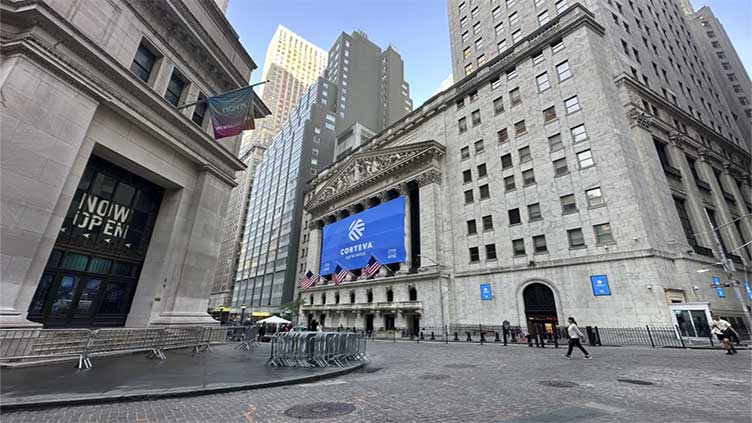Wall Street holds firm after Shanghai stocks suffer worst drop since early COVID

Business
Wall Street holds firm after Shanghai stocks suffer worst drop since early COVID
NEW YORK (AP) — U.S. stocks are holding relatively firm Wednesday following the latest scary swerves for markets in China.
The S&P 500 was 0.1% higher in morning trading and drifting close to its all-time high set last week. The Dow Jones Industrial Average was up 155 points, or 0.4%, as of 10 a.m. Eastern time, and the Nasdaq composite was 0.2% lower.
Boeing slumped 2.5% for one of the market’s sharper losses after it withdrew a contract offer that would have given striking workers 30% raises over four years following a break down in labor talks.
Alphabet also weighed heavily on the market. Its sank 2% as the U.S. Department of Justice considers asking a federal judge to break up its Google business after its search engine was declared an illegal monopoly. A breakup is one of many possible remedies under review.
But big gains for airlines, cruise-ship companies and other businesses whose customers are benefiting from a surprisingly strong U.S. job market helped to offset those losses. Norwegian Cruise Line steamed 8.3% higher after analysts at Citi upgraded its stock and said data suggests growth for the cruise industry “has real legs” into 2025 and beyond.
Treasury yields and oil prices were also holding relatively steady or easing after big jumps for both helped send the S&P 500 on Monday to its worst loss in a month.
Wall Street’s relatively modest moves followed another manic day in China. After earlier surging on hopes for stimulus to prop up the world’s second-largest economy, Chinese stocks have slumped on disappointment that more isn’t on the way.
Stocks in Shanghai tumbled 6.6% for their worst loss since February 2020, when fears were rising about a virus emanating from Wuhan and other cities in China. In Hong Kong, the Hang Seng index fell 1.4% after dropping more than 9% the day before, which was its worst loss since the global financial crisis of 2008.
The Chinese government has set a target for about 5% annual growth this year, but the economy expanded at only a 4.7% pace in the last quarter and economists have been revising their estimates for the full year downward.
Moves announced by China in late September fueled a rally that has since fizzled. But analysts have pointed out that a news conference on Tuesday by China’s main planning agency, the National Development and Reform Commission, was unlikely to convey much information about government spending, which is the purview of the Finance Ministry.
That ministry is due to hold a briefing on Saturday that could provide further details on planned government outlays that so far have fallen short of what investors have been hoping for.
The Shanghai Composite is still up 9.5% for the year so far, while Hong Kong’s index is up 21.1%.
Indexes were more stable elsewhere around the world and rose 0.9% in Japan and 0.2% in Germany.
In the oil market, prices were easing further. A barrel of Brent crude, the international standard, fell 2.1% to $75.55. after briefly topping $81 early this week. Benchmark U.S. crude fell 1.8% to $72.23 per barrel.
In the bond market, the yield on the 10-year Treasury rose to 4.04% from 4.01% late Tuesday. The two-year Treasury yield, which moves more closely with expectations for what the Federal Reserve will do with interest rates, edged up to 3.98% from 3.96%.


